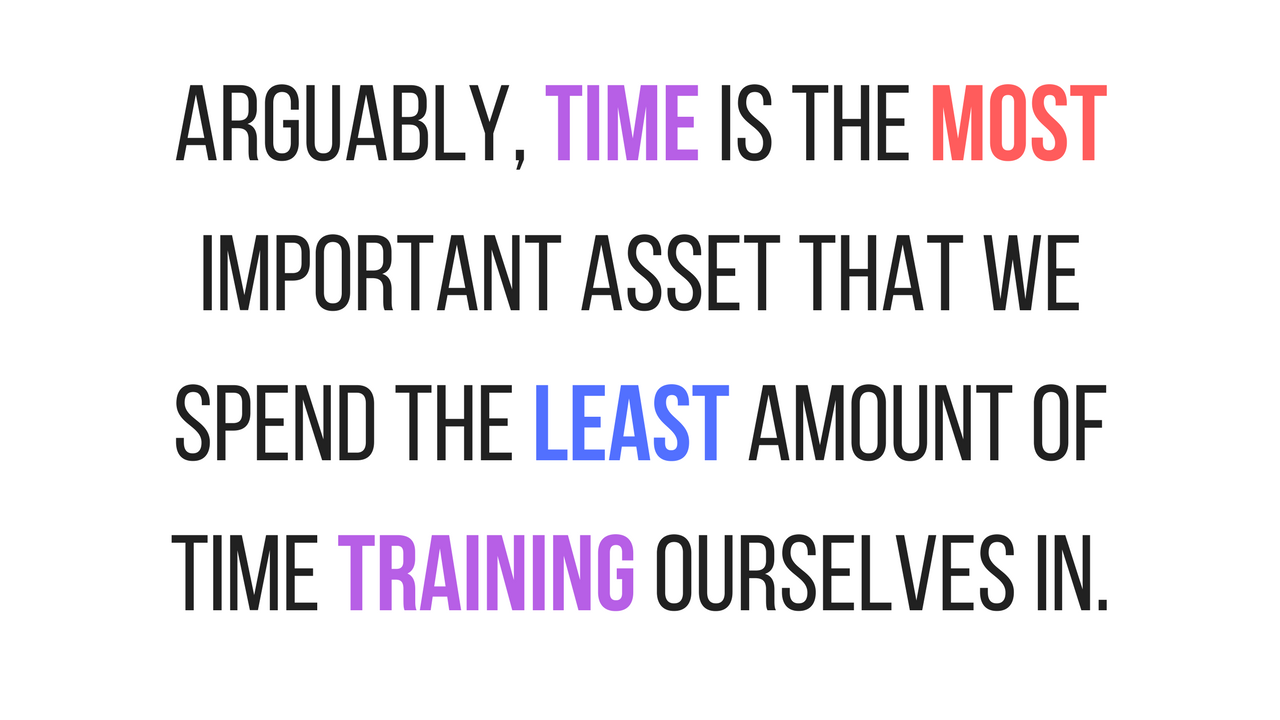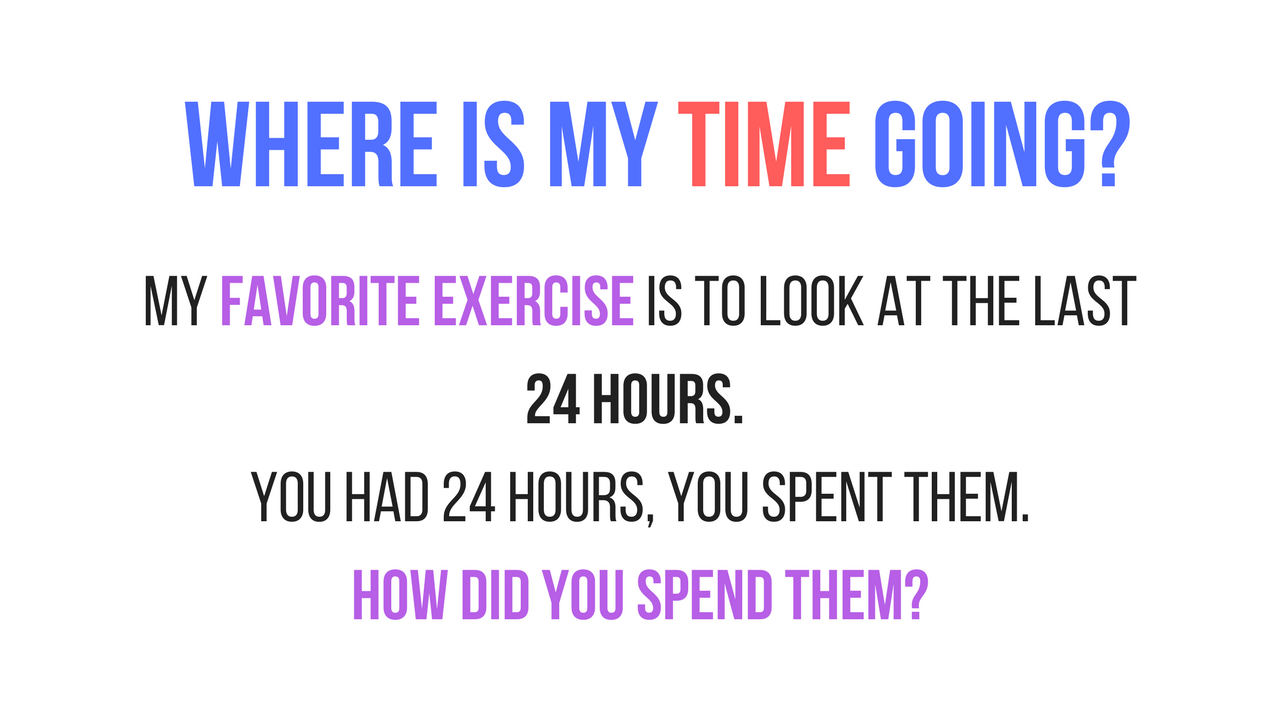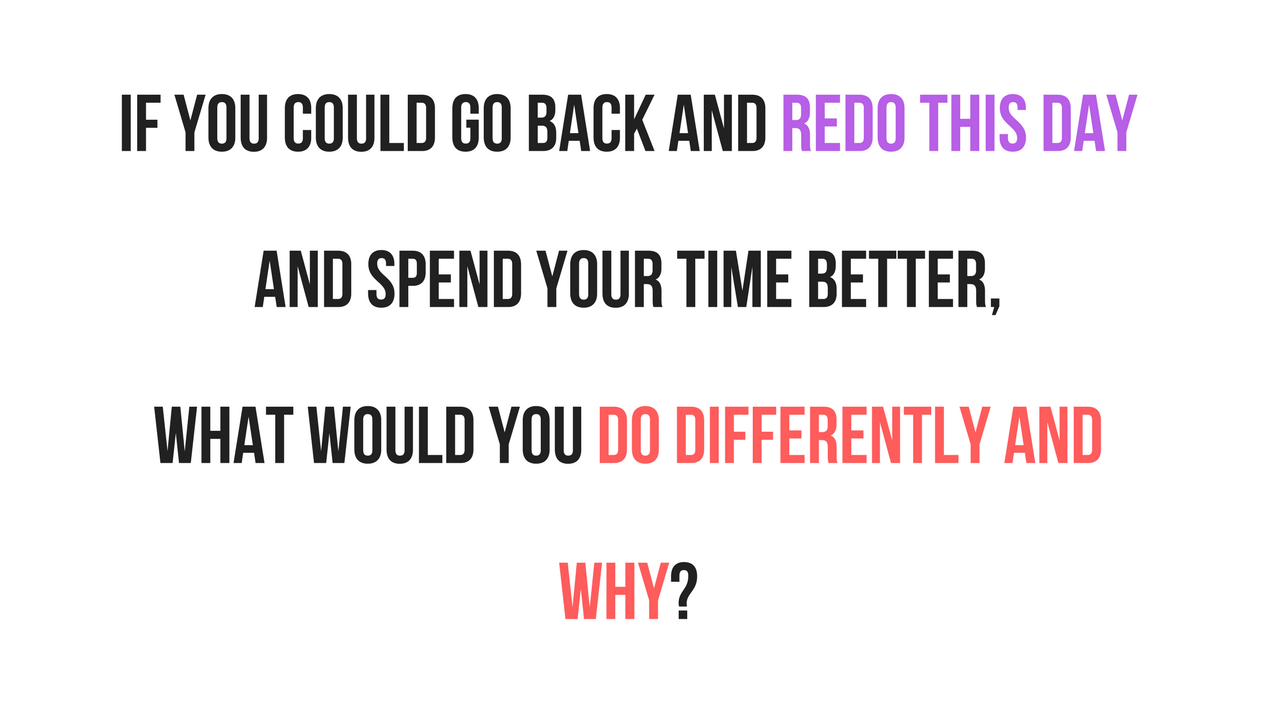The most valuable asset we have is time.
The dictionary definition of time is the infinite continued progress of existence and events in the past, present, and future regarded as a whole.
Progress of existence! I love this way that this refers to time as progress, and I love talking to my clients about time as progress. I think most of us will agree that time is something we want more of. We want more time in our days, in our years, and in our lives. We want more time in our children's lives as well. We want more time in our children's days, in their lives, and in their years as well.
Arguably, time is the most important asset that we spend the least amount of time training ourselves in.

My favorite exercise to do with my kids about time is to look at the last 24 hours. Here's what the exercise looks like: First, I tell them that time is our most valuable asset and that it is important that we understand what we use time for.
How do you currently set up your time?
I wanted to take some time right now and write down how you used the last 24 hours. It doesn't matter if it was a school day or a weekend, you had 24 hours and you spent them. How did you spend them?
I usually set a timer for 10 minutes and let them write down every detail of the last 24 hours. When they look up for the first time, I ask them to estimate how much time each activity took.
For example:
Snapchat in the morning: 15 minutes.
Facebooking after I come home from school: 15 minutes.
I make them include everything that happened: sleeping, cooking, showering — the more detailed they are with their account, the better. And when we have a complete list of what they did in the last 24 hours, I ask them about their thoughts in regards to how they spend their day. I make a point of writing down their thoughts.
“ I think I was being lazy” “ productive” “somewhat productive” “efficient”
The next and most important step is this: if you could go back and redo this day and spend your time better, what would you do differently and why?

All of my clients have a revelation. Every one of them manages to find time in their day and find ways to improve their productivity. The truth is — even the adults — do not live our days deliberately. We live unconsciously and use nothing to manage our time. We look up and spend each hour without realizing that each hour is a gift.
The number one piece of advice I give to all of my clients — which increases their productivity tenfold — is to set aside 10 minutes for planning. My recommendation is to give yourself a specific time period for planning. But keep this time short. Ideally, from 10 to 15 minutes. This should be an adequate amount of time for the child to think about their plan. We usually use this time to:
- Look at the big picture.
- Think about the current goal (e.g. an exam and target score that they want to achieve).
- Lay out all the tasks that they need to do and schedule those tasks.
As a bonus, I ask kids to think about the PREDICAMENT. Of course, I am using the word "predicament" as a sense of irony because I want them to remember this vocabulary word. What I really want them to do is to anticipate obstacles — obstacles that can get in their way and in the way of executing their plan. Here are some examples:
- My sister Bella is having a sleepover, and I will be disturbed and would want to hang out with her friends.
- We're going to a Bar Mitzvah tomorrow.
- I might be tired.
- Tomorrow is the super bowl.
- I will want to procrastinate.
- My friends are doing a boss raid tomorrow.
After we identified the predicament, we can think about how to deal with the issue and arrive at a solution. Example:
- I will tell my sister Bella to ask them to speak quietly until I have completed my homework, and I will decide ahead of time that I will only hang out with her friends once my homework is done and inside my backpack by the door.
- I will prepare my clothes the night before, make all of the necessary arrangements ahead of time (directions, phone calls, gifts), and wake up early to make progress on my homework before going to the Bar Mitzvah.
- I will plan on taking a power nap shortly after returning from school, take a contrast shower after the nap, and do BrainGym exercises before starting my homework.
- I will wake up early before the game starts, make progress on homework, and decide to only start watching the game once the kick off happens.
- I will plan on wanting to procrastinate, and when I do want to procrastinate, treat it as nothing has gone wrong. I know that I want to procrastinate but I will complete my homework anyway.
- Before my friends begin playing games, I will get up early in the morning to complete my homework, inform my friends that I will only be online for 2 hours, and my friends to continue playing without me.

We usually finish this exercise by imagining the next 24 hours and focusing on the result. I suggest that my clients incorporate the 10-minute planning exercise and focus on their foreseen priority. After the to-do list is done, I ask them to refine it based on priorities and deadlines.
So, in order to save the most valuable asset we have, use some of it to schedule your day. Make deadlines a priority. Take some time and find out what you did in the last 24 hours. Think about what you could do differently and how you can improve. Help your friends and family learn how to save time by sharing this post. And if we all work together, we can save time.
